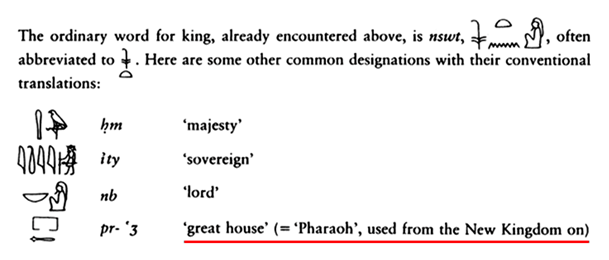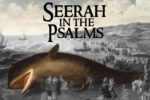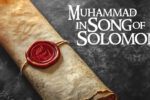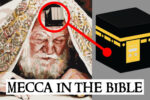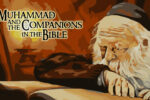Hieroglyphs Affirm the Historicity of the Qur’an.
ETYMOLOGY OF THE WORD PHARAOH
Advances in our understanding of ancient Egyptian hieroglyphs have shown that the Qur’an’s use of the term ‘Pharaoh’ is historically accurate.
The word ‘Pharaoh’ is a title that originates from the Egyptian term ‘per-aa’, literally “great house”, describing the royal palace. Historically, however, “Pharaoh” only started being used as a title for the king much later in Egyptian history, during the New Kingdom period. [1]
This is taken from the book ‘Egyptian Hieroglyphs’ published by the British Museum:
Similarly, under the entry “Pharaoh”, the British Museum Dictionary Of Ancient Egypt confirms that it was first used to refer to the king in the New Kingdom Period:
Pharaoh: Term used regularly by modern writers to refer to the Egyptian king. The word is the Greek form of the ancient Egyptian phrase per-aa (‘the great house’) which was originally used to refer to the royal palace rather than the king. The ‘great house’ was responsible for taxation of the lesser ‘houses’ (perw), such as the temple lands and private estates. From the New Kingdom (1550-1069 BC) onwards, the term was used to refer to the king himself. [2]
A TIMELINE OF ANCIENT EGYPTIAN HISTORY
Ancient Egyptian history is usually divided into periods roughly corresponding to the thirty Dynasties of kings listed by Manetho, an Egyptian chronicler of the 3rd century BCE. I have summarised some of these dates below from Nicolas Grimal’s A History of Ancient Egypt [3] (click on the picture to enlarge):
WHEN DID MOSES ENTER EGYPT?
Scholars have tried to find the period occupied by Moses in history and have placed him at various points within the New Kingdom. According to the Dictionary Of Proper Names And Places In The Bible, under “Moses”:
Moses career unfolds ca. 1250, the date generally accepted for the Exodus. [4]
Similarly, the Encyclopaedia Judaica describes Moses as a:
… leader, prophet, and lawgiver (first half of the 13th century BCE). [5]
WHEN DID JOSEPH ENTER EGYPT?
Professor Emeritus of Egyptology Kenneth Kitchen dates the story to the Second Intermediate Period (c. 1674-1553 BCE) during the time of the Hyksos based on the evidence from the book of Genesis and comparing it with ancient Egyptian history. [6]
The Hyksos belonged to a group of mixed Semitic-Asiatics who infiltrated Egypt during the Middle Kingdom and became rulers of Lower Egypt during the Second Intermediate Period (c. 1674-1553 BCE). The view best supported by evidence and that of the majority of scholars appears to be that Joseph entered Egypt during the time of the Hyksos. The Nelson’s Illustrated Bible Dictionary explains that Joseph’s rise to an important position could only have occurred under Hyksos rule:
… Egypt’s stability was weakening and that the second intermediate period of weakness (1750-1570 B.C.) was about to begin.
During this time of weakness, many non-Egyptians entered the country. A group called the Hyksos (“ruler from a foreign land”) took control of the nation. Joseph’s rise to an important position in the house of Potiphar (Genesis 39) and his appointment to the task of collecting grain during the years of plenty (Genesis 41) were possible because other foreigners had significant places in the Hyksos government. [7]
In conclusion, the entry of Joseph in Egypt can be dated to the Second Intermediate Period (c. 1674-1553 BCE), a time when the Hyksos ruled Egypt.
SUMMARY
The table below sums up the discussion concerning the use of “Pharaoh” in ancient Egypt and includes the times when Joseph and Moses entered Egypt (click on the picture to enlarge):
THE QUR’AN
Now, the Qur’an refers to the sovereign ruler of ancient Egypt throughout its chapters:
– With regard to the Egyptian ruler who was a contemporary of Joseph, the Qur’an uses the title “King”; he is never once labelled as Pharaoh.
– As for the Egyptian ruler during the time of Moses, the Qur’an repeatedly calls him “Pharaoh” and never calls him “King”.
So, the Qur’an’s usage of words respects what we know historically about the changing meaning of the word Pharaoh. Amazingly, these historical facts were unknown at the time of the Qur’anic Revelation in the 7th century, as our knowledge of Egyptian hieroglyphs had long been lost. The only source of knowledge of the religious past were the Bible-based stories in circulation. But the Bible gets it wrong, as it uses the title “Pharaoh” to refer to the Egyptian ruler in the stories of Moses, Joseph and even as far back as Abraham! In several chapters of Genesis we find the same error frequently recurring – some ninety-six times in total. What is clear is that the biblical writers composed their texts under the influences of the knowledge of their time, when the king of Egypt was usually designated as “Pharaoh”. The Interpreter’s Dictionary Of The Bible explains the reasons of such discrepancies with modern knowledge:
The frank attitude toward the stories about Egypt in Genesis and Exodus is that folk memory had retained the essentials of great Hebrew experience but had later clothed that memory with some details imperfectly recollected and some circumstantial details borrowed from later times and conditions. [8]
The Arab scholars Dhul-Nun al-Misri and Ibn Wahshiyya were some of the first historians to be able to at least partly decipher what was written in the ancient Egyptian hieroglyphs [9]. They lived in the 9th and 10th centuries respectively, over two hundred years after the Qur’an was revealed. It wasn’t until the 19th century, with the discovery of the Rosetta Stone, that the French Orientalist Jean-François Champollion was able to translate the hieroglyphs in 1822.
CONCLUSIONS
These facts that we have mentioned were unknown at the time of the Qur’anic Revelation. Knowledge of the old Egyptian hieroglyphs had been totally forgotten until they were finally deciphered in the 19th century CE. Prophet Muhammad (peace be upon him) couldn’t have copied from the Bible because the Bible gets it wrong. From where, then, did he obtain his information? The Qur’an answers:
Your Companion is neither astray nor being misled. Nor does he say (aught) of (his own) desire. It is no less than inspiration sent down to him. He was taught by one mighty in Power. [Qur’an chapter 53, verses 2-5]
It is interesting to note that the meaning of the word ayah, usually translated as ‘verse’ in the Qur’an, also means a sign and a proof. The reference to Pharaoh and other facts concerning ancient Egypt in the Qur’an suggests a special reflection.
Learn more
To learn more about the miracles of the Qur’an you can order and download the free book “The Eternal Challenge: A Journey Through The Miraculous Qur’an” from the One Reason website (click on the image below):
ORIGINAL ARTICLE
http://www.islamic-awareness.org/Quran/Contrad/External/josephdetail.html
REFERENCES
1 – Dodson, Aidan and Hilton, Dyan. The Complete Royal Families of Ancient Egypt. Thames & Hudson. 2004.
2 – “Pharaoh” in I. Shaw & P. Nicholson, British Museum Dictionary Of Ancient Egypt, 1995, British Museum Press: London, p. 222.
3 – N. Grimal (Trans. Ian Shaw), A History Of Ancient Egypt, 1988 (1992 print), Blackwell Publishers: Oxford, pp. 389-395.
4 – “Moses” in O. Odelain and R. Séguineau (Trans. M. J. O’Connell), Dictionary Of Proper Names And Places In The Bible, 1981, op. cit., p. 270.
5 – “Moses”, Encyclopaedia Judaica, 1971, Volume 12, Encyclopaedia Judaica Jerusalem, col. 371.
6 – K. A. Kitchen, The Bible In Its World: Archaeology And The Bible Today, 1977, The Paternoster Press: Exeter, p. 74.
7 – “Egypt” in H. Lockyer, Sr. (General Editor), F.F. Bruce et al., (Consulting Editors), Nelson’s Illustrated Bible Dictionary, 1986, Thomas Nelson Publishers, p. 324.
8 – J. A. Wilson, “Pharaoh” in G. A. Buttrick (Ed.), The Interpreter’s Dictionary Of The Bible, 1962 (1996 Print), Volume 3, op. cit., p. 774.
9 – Dr. Okasha El Daly (2005), Egyptology: The Missing Millennium: Ancient Egypt in Medieval Arabic Writings.



